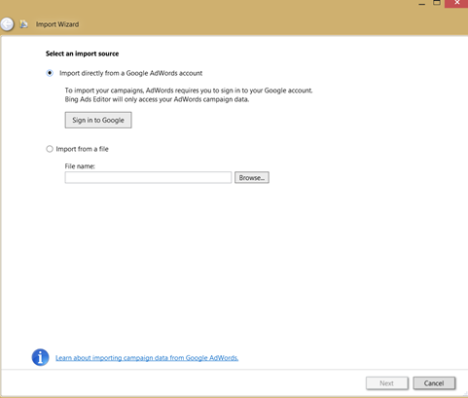Is Bing set to break the search monopoly?
 In this guest column Paul Sprokkreef asks: is now the perfect time to jump on the Bing bandwagon and succeed with a lower budget?
In this guest column Paul Sprokkreef asks: is now the perfect time to jump on the Bing bandwagon and succeed with a lower budget?
Sure, these market share figures may still pale in comparison to the goliath that is Google, but the rapid resurgence of Bing after a long time remaining dormant suggests that the monopoly on search could be threatened.
And as much as we all love Google, who doesn’t like a bit of healthy competition?
So what has spurred this growth, and importantly, will it continue?
Bing has made no secret of the fact that it is specifically targeting Australia for growth. In an article in The Australian in December 2014, it was revealed that Bing counts Australia as a top-tier market outside of North America.
The same article claimed that Bing’s ad strategy in Australia was to make itself similar to Google to use but to present itself as “the transparent search engine”.
Part of this strategy was the release of a ‘Google import tool’ Bing had developed that allows users to take all the ad campaign work they’ve created in Google and copy it to use it as their starting point for a Bing campaign.
This makes trialling Bing simple to do and allows users to test their ads across a whole new platform, with a view to generating more sales or leads at the right price.
Bing’s growth plan also involved including their search engine in more Microsoft products, and the release of Windows 10 in July 2015 saw it set as the default search engine in Microsoft’s new browser, Edge.
This led to Bing search queries increasing by 30% on Windows 10 devices versus prior versions of Windows. If Microsoft achieves its aim of reaching one billion users of Windows 10 by 2018, the next two years will see even more rapid growth for Bing.
What does the growth of Bing mean for marketers?
Bing now provides a real alternative to Google, which marks an exciting opportunity for businesses in Australia.
As bids are generally low in Bing’s auction-based system, you can enjoy a lower cost per click and therefore likely a higher return on investment.
It is, however, worth noting that you’ll still need to use it in conjunction with Google to get sufficient reach, as Google remains king, for now.
The current low competition on Bing means you’ll likely get better conversions, so now is the perfect time to jump on the Bing bandwagon if you want the chance to succeed with a lower budget.
Plus, with less customers, Bing has the ability to provide more tailored account management and lots of customer support. Bing wants your advertising spend and it’s prepared to work for it.
This reads like the start of a real challenge to Google as Bing shows that it is serious about growth in Australia.
Its strategy is already working in the US – where it’s had a much larger share of the US market for some time and experienced significant growth last year (Microsoft sites had a 21.1% share in December 2015 to Google’s 63.8%).
Now that Bing has turned its attention our way, Google Australia is on notice.
Bing has a long way to go, and there are some huge obstacles to overcome. The continued popularity of Chrome is one, and the level with which the term ‘Google it’ has become entrenched in popular culture is another.
For now, Bing will remain a secondary strategy – one which has to be used alongside more pervasive Google campaigns. But if this growth continues, the digital marketing landscape may well shift in Australia.
This shift would mean marketers need to create unique PPC campaigns that understand whether a target user is on Bing, Yahoo, Google, or another search engine, and SEO budgets will no longer be solely devoted to helping you rank on page one – they’ll include discovering which search engine you need to rank on page one with, for which users.
This is an exciting development in a market that hasn’t seen great disruption in some time, and certainly one worth keeping an eye on to ensure you’re getting the most from your marketing spend.
Paul Sprokkreeff is managing director of online marketing agency Web Profits.




While I agree there are opportunities it should be noted that the comScore figures quoted reflect the US market only, and not Australia.
The last figure I can recall for Australia was something around a 92% share for Google.
User ID not verified.
Bing IS actually better to search for porn…
User ID not verified.
Hi Duncan. The 10.8% marketshare for Bing is solely for Australia as per Comscore qSearch, December 2015.
User ID not verified.
I wonder if this is something to do with the Bing virus that overtakes people’s computers and forces the browser to be Bing without permission? It is an insidious bug I can’t easily remove, and I’m quite tech savvy. Not sure I like this strategy but can see how it is working for Bing. Anyone else found the same thing? Cheeky really.
User ID not verified.
Great article Paul! Google for volume, Bing for value – Use the two side by side to balance your paid search strategy and maximise payback. Exciting times indeed, particularly for small business.
User ID not verified.